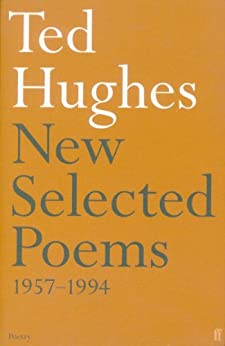

 |

|

The average rating for New selected poems 1957-1994 based on 2 reviews is 3 stars.
Review # 1 was written on 2017-03-08 00:00:00 Steven Bennett Steven BennettU ovom krugu čitanje se svelo uglavnom na pesme iz zbirke "Crow" i moram reći kako je moj dosadašnji utisak o Hjuzu bio znatno bleđi (jer em sam ga čitala odavno em se to svodilo na one prevode koji su tada bili dostupni). Ovo je... nešto sasvim drugačije i gadno dobro. Ciklus pesama o Vrani je dosta specifičan po konceptu - Hjuz jeste krenuo od ideje da napravi ličnu mitologiju, znane svim čitaocima epske fantastike, ali se - kao prvo - koristio uglavnom mnogo drugačijim izvornim materijalom od Tolkina i tolkinovaca, usredsređujući se na kosmogoniju i priče o Varalici; kao drugo - ove pesme su u svojoj fragmentarnosti i protivrečnosti mnogo bliže nekom "pravom" sistemu mitova nego standardne izmišljene i na silu sistematizovane mitologije; kao treće - apsolutno se ne uklapaju u neku zaokruženu celinu osim po crnom humoru (koji je, iskreno, dovoljno crn da mi ne bude smešan iako prepoznajem da će nekome biti) i kao četvrto - ovo je, brate, poezija. I to brutalna i teška i mračna do mučnine. Nije za svaki dan (dobro, poezija generalno nije za svaki dan, bar ne meni), ali svakako je vredi čitati. |
Review # 2 was written on 2015-02-26 00:00:00 John Shedlock John ShedlockArt is its own end, some would say, and so authorial intentions become irrelevant in any hermeneutic endeavor. I do agree that killing off the author sets open myriad interpretative possibilities—the text becomes the reader’s; meaning could be sought in any vestige of the written word; the autonomy of the text results into the genesis of the reader. Fine and dandy. The problem in postmodern poetry, though, is that much of it is ‘confessional’—painfully personal and autobiographical, and the knowledge of the slightest details of the poet can block up, subliminally, the wanderings and vagaries of thought. Knowing that Sylvia Plath was a borderline masochist kinds of steers my thought-process conveniently into locating her verse in a certain hermeneutic space. I assign meaning without intending to, almost wrought powerless, miserable, utterly predictable by this foreknowledge. This is bad. This is very bad for the student who can only aspire to get their instructor’s attention by being ridiculously fantastic and novel. Therefore, I read this book without any inquiry into Hughes’ life, what he suffered, what the poetic form meant for him. And sadly, I left him unimpressed, uninspired. There was considerable violence, the kind of violence and aggression you find in Plath, but most of it doesn't hit you hard enough, leaving you breathless, but rather distracted, confused, unsure. Some poems do overwhelm with their majestic construction, perfect diction but mostly, and this is sad, I couldn't find much in this collection that I would want to write in my journal. Sad, indeed, considering the general plaudit associated with his name. The Crow poems, though, are a different story—very disturbing yet very intriguing. Hughes, with his remarkable animal imagery, excels in presenting a different side of the human psychosis, a more shared, a more universal kind of postmodern alienation and bewilderment. He is perhaps even more elusive than Plath (which is weird considering how cerebral Plath herself was), but I think the last few poems in this collection came off as strikingly honest and personal, almost inviting autobiographical interpretation. I have no idea if they were written with Sylvia in mind, but they do strike one as little confessionals in themselves. I was immensely moved by the vulnerability shown. Most women don’t really fancy poor Ted because of obvious reasons but he had his side of the story, too, and it goes without saying that if you explored Plath’s neurotic world, Hughes’ equally neurotic world deserves exploration, too. He isn't half as good, at least for me, but he wrote the Crow poems, and, well, that’s reason enough. My favorites from this collection in order of appearance: “The Man Seeking Experience Enquires His Way of a Drop of Water” “Hawk Roostings” “Water” “Memory” “Crow Wakes” (and all the other Crow poems) “Kafka” “Pibroch” “Full Moon and Little Frieda” “Owl’s Song” “Revenge Fable” “Widdop” “From Prometheus on His Crag” “Low Water” “Go Fishing” “An Eel” |
CAN'T FIND WHAT YOU'RE LOOKING FOR? CLICK HERE!!!